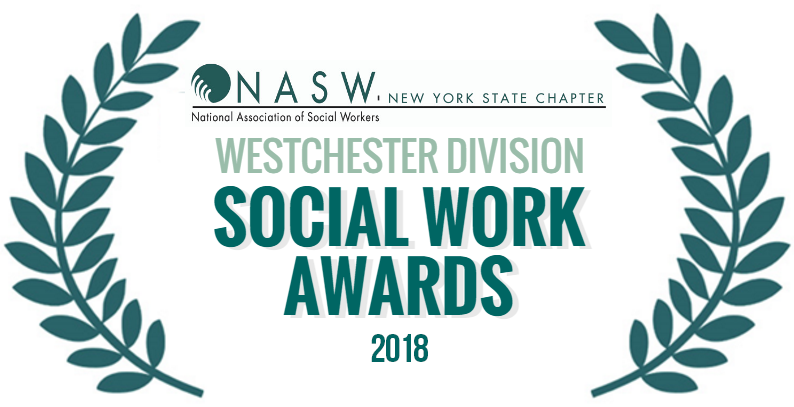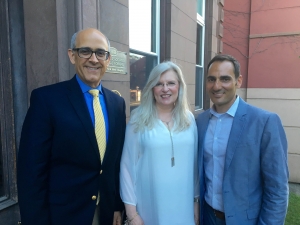Social workers urge N.Y. to require licenses for its mental health providers
Advocates call for additional training to meet requirements
By Claire Hughes Published 8:55 pm, Wednesday, March 23, 2016
Albany
If you are being treated for depression or bipolar disorder or schizophrenia, private health insurance will cover it only if your mental health practitioner is licensed.
But if you are being treated through a state agency, the professional seeing you does not have to be licensed.
Social workers who treat mental illness were not required to be licensed until 2002. At the time state agency officials said it would be too costly and onerous to meet that requirement, so they were given some extra time.
It’s been 14 years. Professional societies of social workers say that’s long enough. They’re pushing for an end to the exemptions as part of the state budget due at the end of the month.
The issue primarily affects New Yorkers using Medicaid, the government-sponsored health insurance program for low-income Americans, because they are most likely to be treated by a state agency.
“This practice is discriminatory and dangerous, and it disproportionately impacts poor and minority communities,” said Ron Bunce, executive director of the New York State Chapter of the National Association of Social Workers.
Budgets proposed by the governor and state Assembly continue the exemption for another five years, until 2021.
A proposal in the state Senate requiring licenses for providers with authority to diagnose mental illness would go into effect this year.
Licensed clinical social workers must go through training that unlicensed professionals do not. They must have master’s degrees in social work, pass licensure exams and spend three years under the supervision of a licensed clinical social worker, according to Bunce.
In urging a further extension of the exemption, state agencies argued that the licensure requirement would be too costly — upwards of $360 million — to implement. The exemptions apply to any organization operated, funded or regulated by the state Office of Mental Health, Office of Children and Family Services, Office for Peoplewith Developmental Disabilities, Office of Alcoholism and Substance Abuse Services, Office for the Aging, Office of Temporary and Disability Assistance and Department of Corrections and Community Supervision. (The state Health Department already requires its social workers providing mental health services to have licenses.)
DOCCS, for instance, said that nearly 300 positions in its Alcohol and Substance Abuse Treatment Services program would need to be licensed to meet the requirement. DOCCS has already been unable to fill vacant positions for psychologists and licensed social workers to meet a state mandate to provide mental health services for incarcerated sex offenders, the agency reported. Many current workers would likely be unwilling to invest in the training required to become licensed, it argued.
The social workers’ organization concedes that not all staff who provide mental health services need the training a license entails. NASW is asking that professionals providing diagnoses be licensed and that patients get at least one face-to-face meeting with them, said Karin Carreau, director of policy for the NASW state chapter.
Carreau described what she characterized as the exemption’s absurdity with this analogy: Imagine having a heart attack and going to an emergency room, only to hear, “We really can’t afford to hire licensed physicians, but we have some employees who passed biology to help you.”
chughes@timesunion.com • 518-454-5417 • @hughesclaire
Source: Social workers urge N.Y. to require licenses for its mental health providers, Times Union, 3.23.16
http://www.timesunion.com/local/article/Social-workers-urge-N-Y-to-require-licenses-for-7004299.php









 “I’m so excited to be entering this new phase at NASW-NYS. As Program Director, I’m looking forward to working with and for our membership to provide the best professional development services and continuing education opportunities throughout the state. Since graduating with my MSW, I’ve been looking for an opportunity to work for the profession and the countless people that have chosen social work as their career. I know that the amazing team here at NASW-NYS are poised and ready for the next chapter in our organization, and I feel so privileged to be serving our membership through our Program Department,” says Kimberly.
“I’m so excited to be entering this new phase at NASW-NYS. As Program Director, I’m looking forward to working with and for our membership to provide the best professional development services and continuing education opportunities throughout the state. Since graduating with my MSW, I’ve been looking for an opportunity to work for the profession and the countless people that have chosen social work as their career. I know that the amazing team here at NASW-NYS are poised and ready for the next chapter in our organization, and I feel so privileged to be serving our membership through our Program Department,” says Kimberly.
